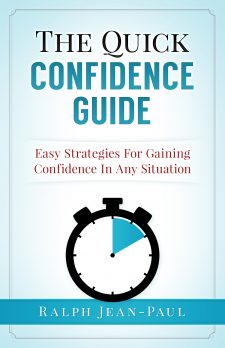Have you ever been in a situation where you had the opportunity to say something or to speak up for yourself but you didn’t? Maybe there was a decision to be made but for some reason you couldn’t muster up the courage to make that gutsy decision? With the lack of assertiveness, come missed opportunities to communicate your ideas and thoughts. The lack of assertiveness can also make you appear self-conscious and not having your own opinions.
On the other hand, those who are assertive are seen by others as confident, more knowledgeable, more fun to be around, and more likely to have something interesting to say. With all of those qualities, it’s no wonder the people who seem to succeed the most in their professional and social life are more assertive than the ones who don’t. This is because most people who know how to assert themselves communicate their ideas to other people better.
Why you aren’t assertive
There is a misconception about assertiveness. It is often confused with aggressiveness. This is may be the reason some people fail to be assertive because they do not want to be seen as aggressive or pushy. This is a valid concern because no one really wants to be pushy or overly aggressive. Assertiveness is not puffing your chest out and showing your teeth, it’s communicating what you think or would like to happen in any situation.
The lack of assertiveness is sometimes linked to a lack of self-image. What you think of yourself is what you will project to others. There are many different ways to assert yourself even if you are not the most confident person in the room. It takes an understanding of yourself, how you would like things to be, and the best way to communicate what you want.
Know why you are asserting yourself
I try to avoid-as much as possible- people who assert themselves just for no good reason. Undoubtedly you’ve come across someone like that. These people are usually use to being right and having their own way so they instantly feel as though they have to speak up no matter what. This is a terrible mistake for many reasons. One of the major downsides to having this approach to assertiveness is that forcing your will on other people doesn’t translate to effective communication with others.
People will go along with you just avoid confrontation not because your ideas or decisions are valid. And if they think your ideas and decisions are not valid, then they will tend to believe that the reason you are asserting yourself is also invalid.
Here are some common reasons to assert yourself.
-You have been wronged.
-There is a decision to be made.
-There needs to be some action taken.
-You need to correct someone else’s action
-You have a solution to a problem
-You need to stand up for yourself and others
Be Right
Nothing backs up your assertion better than the fact that you are in the right. It is amazing how some people will assert their ideas or wants when they have no logical reason to. But when you are in the right, you really don’t have to assert yourself so much as you think you do.
Having been in many situations where being assertive was necessary, I’ve realized that finding the ‘bottom line’ of the dispute or situation was the best and quickest way assert my thoughts. I usually think to myself “what is the problem and what is suppose to be done to fix it?” When I reach the bottom line and come up with the solution, presenting it is easy.
This is also helpful when you are talking to a parent, boss, significant other, or customer. If a parent is in the wrong, you remind them of what they’ve taught you. If your boss is in the wrong, you remind them what you have been told and taught about procedures and the mission of the company. Being right gives you a strong foundation to assert yourself because not many will go against logic and results.
Find your ‘type’ of assertiveness
Many introverts think that assertiveness is a characteristic of people who are more outgoing. Not true. There are several different ways to be assertive even if you are an introvert. The way you assert yourself will depend on your personality type and by the method in which you best communicate your thoughts, ideas, and desires.
Questioning– Asking a question as a suggestion is an effective way to assert your idea while softening the blow of telling someone they are wrong. Saying something like “Don’t think it would be better if we…?” is a good way of asserting what you want out of the situation all the while making the other person feel as though they had a part in the decision making.
Apologize without an Apology-Sometimes you have to assert yourself when it seems as though you are not entitled to. Saying, “Sorry, I know it’s not my place to say this but…” is a good way to make it your place to say whatever it is you are going to say.
The laugh assertion-It’s hard to stay mad at someone if they are making you laugh. Making a joke and making light of a situation is a good way of presenting your will for the situation without making it seem as though you are forcing your will.
The ‘or else’ assertion-Using this type of assertiveness allows you to give the person or people an option of what to do and a consequence if it is not done in that way. Say, “If we don’t do it this way then…might happen.” This allows you to present a scenario that has a negative conclusion if the action is not done the way you suggested it.
Straight forward-Sometimes being straightforward with your approach is the best (and in some cases the only) way to communicate with someone. This is just telling the person exactly what you want to be done in any situation. Leave aggression and anger out of the equation but do not hide the fact that you are displeased or unhappy about the situation.
The advantages of effectively asserting yourself are many. Finding the best way to communicate your ideas and desires may take some practice, but knowing that you can handle a person or people in any situation by asserting yourself is worth the work. Talk to Strangers: How to Easily Start Conversations With Anyone >>

 Subscribe for free today and get a FREE copy of my ebook The Path 2 Success. Begin your path today!
Subscribe for free today and get a FREE copy of my ebook The Path 2 Success. Begin your path today!










